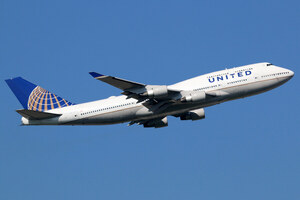 That, however, is just the tip of the iceberg. Airlines, including Delta and Virgin America as well as United, are heavily invested in shaking off the wage and hour requirements of the California Labor Code. These efforts have consistently failed in the Ninth Circuit. Speculation abounds that a Supreme Court fight over the reach of California wage and hour law looms.
That, however, is just the tip of the iceberg. Airlines, including Delta and Virgin America as well as United, are heavily invested in shaking off the wage and hour requirements of the California Labor Code. These efforts have consistently failed in the Ninth Circuit. Speculation abounds that a Supreme Court fight over the reach of California wage and hour law looms.Why fight over pay stubs?
It seems like a petty issue – whether the statement is three pages long or one page, or whether workers have to do a little extra searching to calculate their hourly rate. It is important to realize, though, that the protections of California Labor Law are not self-enforcing. They depend on the vigilance of workers, who are their own first line defense when it comes to policing wage and hour compliance. Not all have the background or time to analyze whether increasingly complicated pay structures meet the requirements of the law. Not everyone has an accountant.
Therefore Section 226(a) explicitly requires that employers provide pay stubs that report:
- gross wages;
- total hours worked;
- deductions;
- net wages
- pay period; and
- the name and legal address of the employer, among other things.
Employees based in California but working elsewhere
The situation that both Vidrio and Ward (with which it was consolidated) confront is that pilots and flight attendants may be based in one state but work in many others. The facts of the case reflect the interstate nature of the airline and other transportation industries.
United is headquartered in Chicago, Illinois, with a large administrative office in Houston, Texas. Only 17 percent of its employees are based in California.
The plaintiffs in this lawsuit include only pilots and flight attendants who reside in California, receive their pay in California, and pay California income tax on their wages. None of them works principally in California. The pilots spend roughly 12 percent of their flight time in the airspace above the state, and the flight attendants spend roughly 17 percent of their flight time in the airspace above California.
United issued the plaintiffs at least two wage statements per month. The wage statements provide a P.O. Box as United's address. The statements list the amount earned in various flight and non-flight pay categories, such as “Regular Pay,” “Sick Pay,” and “Customer Satisfaction Bonus.” But they do not list the hours and pay rates that made up the “Regular Pay” for any given period. The hours worked and hourly pay rates are available to the pilots and flight attendants in electronic records. The electronic records are updated in real time and are always accessible through United's internal website.
The pilots and flight attendants argue that the wage statements do not comply with the letter of California Labor Law Section 226. The airline argues that California law does not apply to wage statements provided by an out-of-state employer to an employee who does not work principally in California or any other state.
Up and down the court system
READ MORE CALIFORNIA LABOR LAW LEGAL NEWS
- the employee works a majority of the time in California; or
- with respect to interstate transportation workers who do not work a majority of the time in any one State, “the worker has his or her base of work operations in California; and
- if a pilot or flight attendant has a designated home-base airport, section 226 would apply if that airport is in California but not if it is elsewhere.
What’s next?
It’s not just about the pay stubs, of course. That is only a small part of larger issues focusing on the national applicability of worker-friendly California labor laws. And it’s not just about the airline industry. Many interstate transportation industries are likely watching the case with keen interest.
